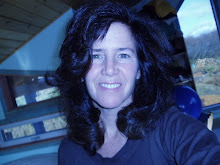

I’d read through several travel guides for Kuwait, yet all seemed at a loss for suggesting how best to pass time in Kuwait outside Kuwait’s apparently insatiable yen for shopping. Locals most often asked me, which malls have you visited? The Avenues? The Marina? Al Kout? At some point, it’s impossible to avoid the mall culture that has become the national past time. Meetings outside of working hours are inevitably conducted at mall coffee shops, and most typically, Starbucks. Yes, the world’s worst coffee has invaded the Middle East. The old-world Arab coffee shops tucked along the side streets are small outdoor patio affairs with dirt floors, benches, and a few scattered tables and chairs. Men in pairs, men alone, but men, always men, chat idly and gesture lazily to emphasize their points. As a filthy menstruating female, I am prohibited entry to this world, but I peer inside whenever I pass. I listen to the soft gurgle of men sucking on water pipes. I squeeze back a dry cough deep inside my chest, and hold my breath against the cloying sweet smoke of the sheesha as I walk on to the Marina Mall. Or maybe it was the Avenues. Or Souq Sharq. I don’t know, which. Each mall is a “deja vu” collection of over-priced clothing, jewelry and perfume shops, the recurring line of storefronts occasionally broken with a Starbucks or a Costa Coffee shop. The monochrome field of white dishdashas and black abayas, the dancing script of westerns shop names in Arabic script, and the presence of gender-segregated prayer rooms are the only clues that I am not in Minneapolis or Los Angeles or Dallas or Tampa or Omaha.
Infinitely bored with the mall scene and its expense - one 250-ml (8 oz) Starbucks cappuccino was $4.25!!! - I believed that there had to be more to Kuwait’s nightlife than the malls, there simply MUST be. I’d heard of the Advocates for Western-Arab Relations (AWARE), a local non-profit cultural outreach organization, and had finally managed to attend one of their diwaniyas. This was my first experience with the concept of the diwaniya, a discussion group intended to inspire thoughtful discussion and reasonable discourse among those with various opinions. I was both wary of and fascinated by the discussion topic for my first diwaniya, “Islam vs. Terrorism.” Wary, because I wondered how truly open any discussion of religion can be, yet fascinated to hear Muslims speak their opinions on what connection – if any – exists between their beliefs and the violence perpetrated by some “in the name of Islam.”
After a short and very dry Power Point presentation that explored the international definition of terrorism and its sub-types, as well as references from the Qur’an that prohibit killing the innocent but do allow for killing only in self-defense, the topic was open to the room. Ever the critical thinker, the vagueness of “innocence” and “self-defense” disturbed me. Who decides one’s innocence? Who decides what constitutes self-defense? If one feels oppressed by another nation (e.g., Palestinian resentment towards the presence and/or expansion of Israeli settlements in Palestine Occupied Territories), is it right to assume the “oppressing” nation’s people are not innocent, and that re-taking settled land by force is self-defense? I could see how a devout Muslim might be able to justify to him/herself an act of violence towards Israel as “self-defense” in this context. When Dr. Lesh, the mediator for the diwaniya, affirmed that self-defense and innocence could only be determined in a court of law, my mind went to the many United Nations Resolutions that condemn the settlements (UN Resolutions 446, 452, 465). By no means am I advocating acts of violence against Israel; however, I left the discussion completely unclear on how Islam would interpret such an action.
One Westerner asked, “But what about jihad? What is it?” Muslims in the group insisted that jihad refers to personal or daily “struggle,” not war. Jihad is an element of daily life that can include striving to feed one’s family, to educate oneself, to raise one’s children as good citizens, or any other aspect of life that requires effort. The Muslims in the room felt that fundamentalists had redefined “jihad” for political purposes, much the way that ultra-conservatives in the US have co-opted the word “freedom” to promote military objectives.
The Muslims in the group wondered, why are only events involving Arabs reported as terrorism? What about the genocidal acts of the Janjaweed in Sudan or the Lord’s Resistance Army in Uganda, or the brutal massacres of Seung Hui Cho at Virginia Tech and Pekka-Eric Auvinen at Jokela School? Aren’t these, too, acts of terrorism? I admit it’s hard for me not to disagree. Why aren’t these reported as acts of terror? Of course, the discussion was about Islam and its view towards acts of terror, not the role that media plays in creating bias. That topic alone could consume many diwaniyas.
One Kuwaiti woman argued, “Westerners know nothing about Islam. When’s the last time you saw a book about Islam in the US?” “Every day,” we answered, nearly in unison. She was not aware that US bookshelves, in stores and in libraries, are flush with books on Islam, and that new ones are released every day. Americans are starved for information about an elusive world they’ve only recently been exposed to, and that’s become part of their daily lives, through the media.
This reinforced the idea that we all censor based on what we absorb from the print, broadcast and Internet media. Everyone, regardless of political, religious, or cultural affiliation, stereotypes each other. When I left I hoped that everyone in the room would acknowledge bias on all fronts, and consider its power in the stories we hear. The diwaniya was intriguing, but it seemed most of us left with more questions than we came with.


No comments:
Post a Comment